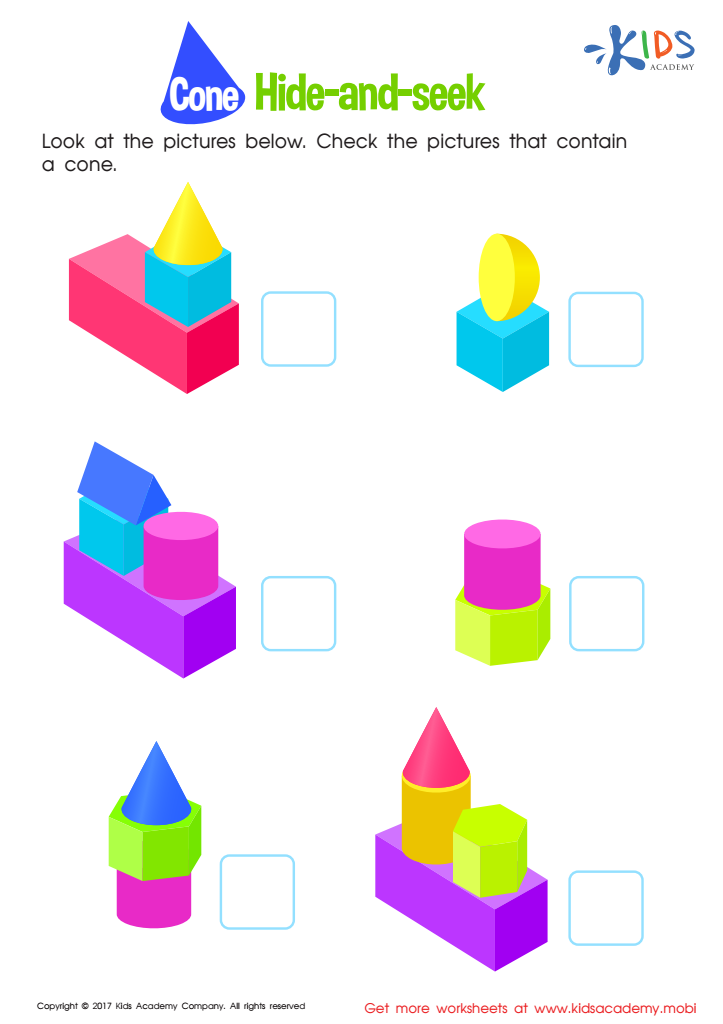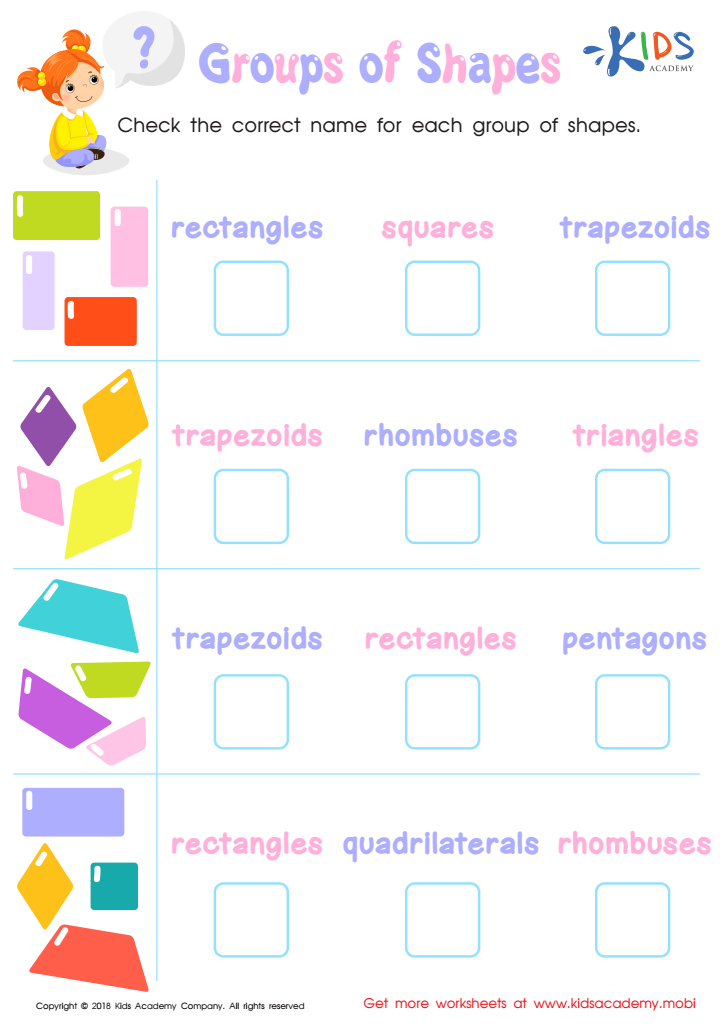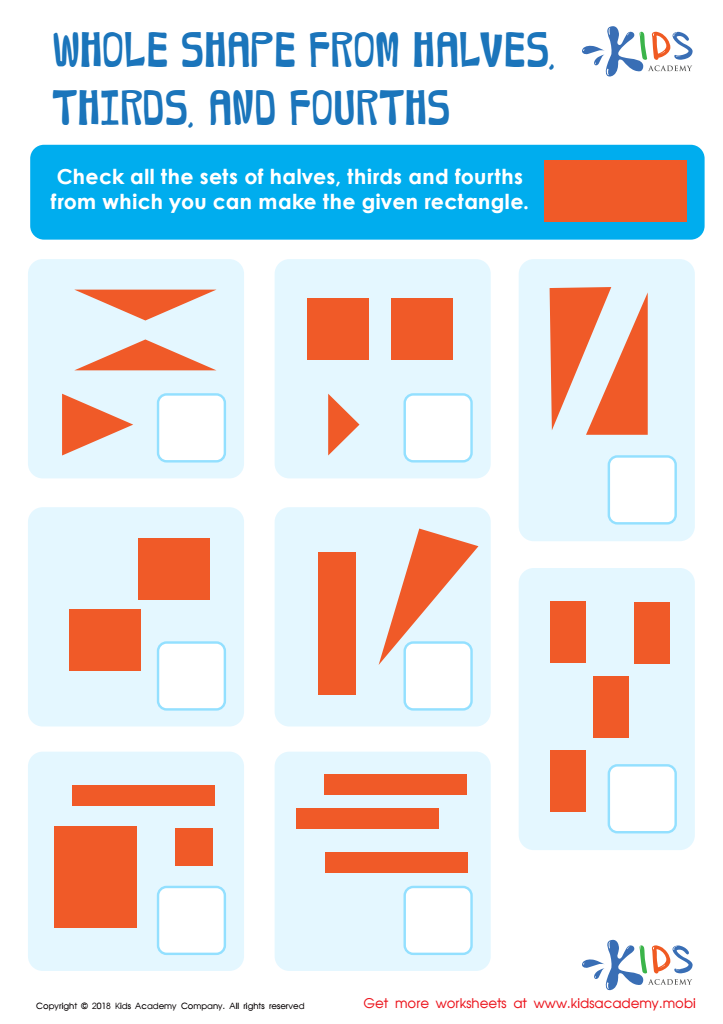Counting skills Easy Geometry Worksheets for Ages 7-8
3 filtered results
-
From - To
Enhance your child's understanding of geometry with our Counting Skills Easy Geometry Worksheets, designed specifically for ages 7-8. These engaging worksheets provide a fun and interactive way for young learners to explore fundamental geometric concepts while practicing essential counting skills. Each activity promotes critical thinking and helps solidify knowledge through enjoyable exercises. With colorful visuals and intuitive designs, children will be motivated to learn and improve their math abilities. Perfect for use at home or in the classroom, our worksheets can be easily printed for repeated practice, ensuring young learners build a strong foundation in geometry and counting. Empower your child's learning journey today!


Cone Hide-and-Seek Worksheet


Groups of Shapes Worksheet


Whole Shape from Halves, Thirds and Fourths Worksheet
Counting skills and basic geometry are foundational elements in the early education of children aged 7-8, significantly influencing their cognitive development and overall academic success. Mastering counting skills equips children with the ability to understand numbers, enhance their problem-solving skills, and develop logical reasoning. This age group is typically encountering mathematical concepts that require a solid grasp of counting, serving as a building block for more complex operations. As students engage in activities involving counting, they strengthen their numerical fluency, making future math learning more manageable.
Similarly, early exposure to geometry cultivates spatial awareness and critical thinking. Through learning shapes, symmetry, and simple measurements, children develop an understanding of how objects interact in space, which lays the groundwork for more advanced mathematical concepts.
Moreover, both counting and geometry skills enhance a child’s ability to connect mathematics to real-world situations, making learning more engaging and practical. For parents and teachers, focusing on these skills fosters a positive attitude towards mathematics, increasing students' confidence in their abilities. Thus, emphasizing counting and basic geometry during ages 7-8 is crucial not only for immediate academic purposes but also for nurturing lifelong mathematical thinking and problem-solving skills.
 Assign to My Students
Assign to My Students































